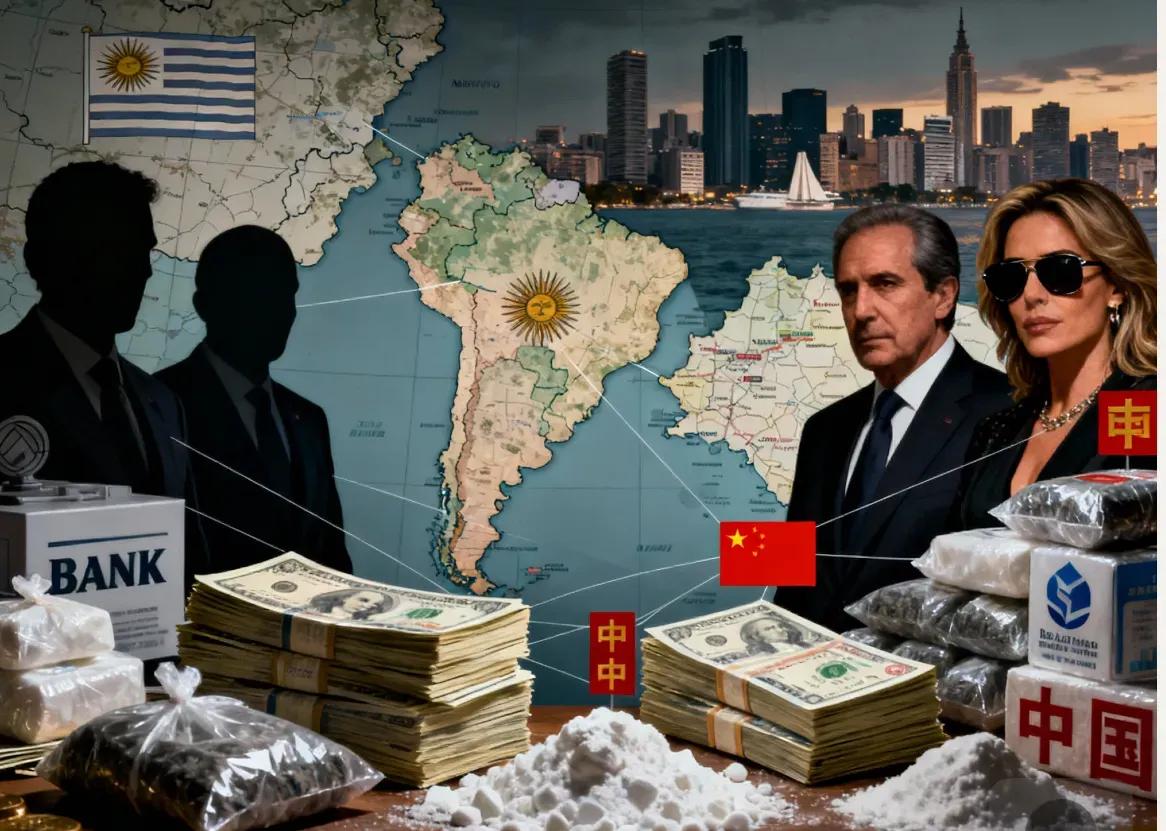William Acosta, CEO of Equalizer Investigations for FinGurú
Over the last decade, Uruguay has reaffirmed itself as a destination for high-profile capital and assets, especially of Argentine and Asian origin. The appeal of its regulatory framework, low taxation, banking secrecy, and reputation for institutional stability has made the country a privileged place for entrepreneurs, celebrities, and political figures. At the same time, these same qualities have exposed the Uruguayan territory to the infiltration of money laundering networks, corruption structures, and the sophisticated advance of international organized crime, creating a vulnerability that threatens the integrity of the economy and the judicial system (Chequeado, 2025).
The rise of tax residences for Argentines, the arrival of funds of Asian origin, and illegal flows from drug trafficking have generated unprecedented pressures, revealing weaknesses in the system and the need to deepen international cooperation and financial intelligence. In this context, Uruguay faces an unprecedented ethical and political challenge: to consolidate economic development and international standing without sacrificing transparency or legality.
Institutional Framework and Corruption Network
Uruguay has advanced regulations and dedicated agencies, such as Senaclaft and Law 19.574, for the prevention and combating of money laundering (National Secretariat for the Fight Against Money Laundering and the Financing of Terrorism, 2025; IMPO, 2018). However, gaps persist due to the complicity of public and private actors—customs officials, notaries, bankers, entrepreneurs—and negligent practices in the actual supervision of suspicious transfers, real estate purchases, and the creation of shell companies (Sudestada, 2019).
The Boston River case and the Sports Anonymous Company illustrate how funds from PDVSA, channeled through offshore companies, enter the country and are used in local sports and business activities, with investigations and court statements ongoing (La Diaria, 2025).
Banks, Financial Sector, and Controls
The Uruguayan financial sector, with banks like BROU and international subsidiaries, has historically been observed for deficiencies in due diligence of its clients and private banking activities with offshore accounts. The transfer of large sums and the channeling of funds into real estate investments have revealed failures in controls and reports, motivating administrative sanctions and recommendations from the Financial Intelligence and Analysis Unit of the Central Bank (Financial Intelligence and Analysis Unit – BCU, 2025).
Judicial Files and Key Rulings
Several emblematic cases stand out, such as the Definitive Ruling No. 644/2024 of the Supreme Court, regarding money laundering and seizure of assets thanks to the tracking of operations, expert analysis, and evidence gathered by the UIF and police (Supreme Court of Justice, 2024). The Administrative Contentious Tribunal issued resolutions — such as the case Res. 0242020 — documenting administrative sanctions due to deficiencies in the reporting of suspicious operations (TCA, 2024).
Key Figures: Entrepreneurs, Politics, and Celebrity
Among the implicated are Andrés “Betingo” Sanguinetti (linked to the Odebrecht case), brothers Gianfranco and Mariano Macri (allegedly connected to offshore schemes between Argentina and Uruguay), the firm Posadas, Posadas & Vecino (operator of shell companies for asset and fund management), and Argentine leaders and celebrities residing in Uruguay, all under active surveillance or investigation in journalistic and official files (Sudestada, 2022; La Diaria, 2016; LR21, 2001).
The rise of tax residences for Argentine celebrities, entrepreneurs, athletes, and media figures has energized the real estate and services sector, as well as the reputation climate, due to the doubts these wealth flows generate regarding compliance with international transparency standards (Chequeado, 2025).
The Chinese Network and Money Laundering
In recent years, Asian operators and Chinese entrepreneurs have expanded their presence in Uruguay, creating shell companies and using global financial circuits to channel questionable capital (Infobae, 2025). The arrival of Chinese capital coincided with investments in real estate and agro-industrial sectors, the creation of mirror companies, triangular transfers, and import-export operations, sometimes linked to drug trafficking networks like that of Sebastián Marset (State Department, 2025).
Prosecutors and financial analysis units have detected operations above the average, beneficiaries with Chinese nationality, and activities linked to free zones and wholesale trade, all identified as key pieces in the laundering stratification through the Uruguayan system (Financial Intelligence and Analysis Unit – BCU, 2025).
International Drug Trafficking: The Case of Sebastián Marset and Other Kingpins
The most relevant example is Sebastián Enrique Marset Cabrera, considered by the DEA and INTERPOL as one of the most influential kingpins in the region (BBC, 2023). Marset and his criminal network used Uruguay to launder millions through fictitious companies, transfers to accounts in China and Europe, and the purchase of luxury goods, passing the money through Brazil, Paraguay, and Bolivia (Infobae, 2025; El Observador, 2025; Wikipedia, 2025).
The United States offered two million dollars for relevant information regarding his capture, and accusations for money laundering were formalized in the U.S. judicial system (State Department, 2025).
Other regional criminal structures—including Mexican cartels and European mafias—have used business accounts and Uruguayan banks for global transfers, real estate purchases, and high-impact asset concealment operations (La Mañana, 2020; Caras y Caretas, 2023).
Conclusion
Uruguay faces a crossroads as a financial and economic hub: it must consolidate its international reputation and development without yielding to the opacity of illicit capital or the sophistication of transnational crime. The exposed names and structures—national, Argentine, Asian, and multinational—confirm the urgency of strengthening asset control, financial intelligence, and judicial cooperation and of protecting institutional integrity against pressures from increasingly complex and globalized criminal organizations. Only a transversal and collaborative strategy will allow Uruguay to reaffirm its ethical and legal leadership, preserving transparency and security for future generations.
About the Author: William L. Acosta is a graduate of PWU and Alliance University. He is a retired police officer from the New York City Police Department and the founder and CEO of Equalizer Private Investigations & Security Services Inc., a licensed agency in New York and Florida with international reach.
Since 1999, he has led investigations in cases of narcotics, homicides, and missing persons, in addition to participating in criminal defense at both the state and federal levels.
A specialist in international and multijurisdictional cases, he has coordinated operations in North America, Europe, and Latin America.

Comments